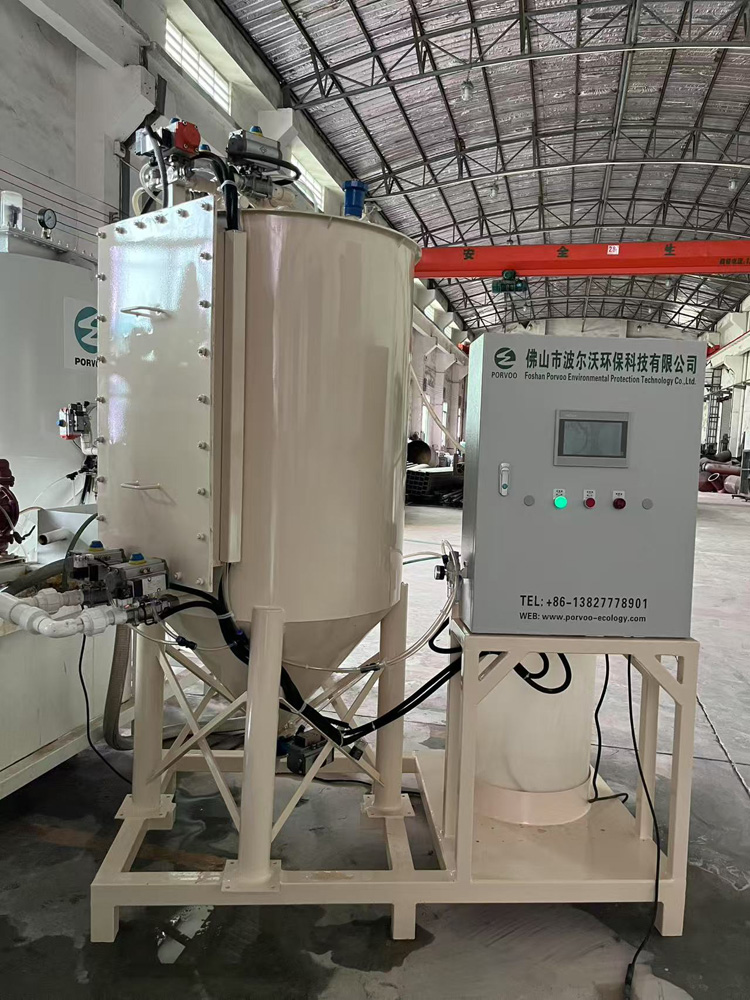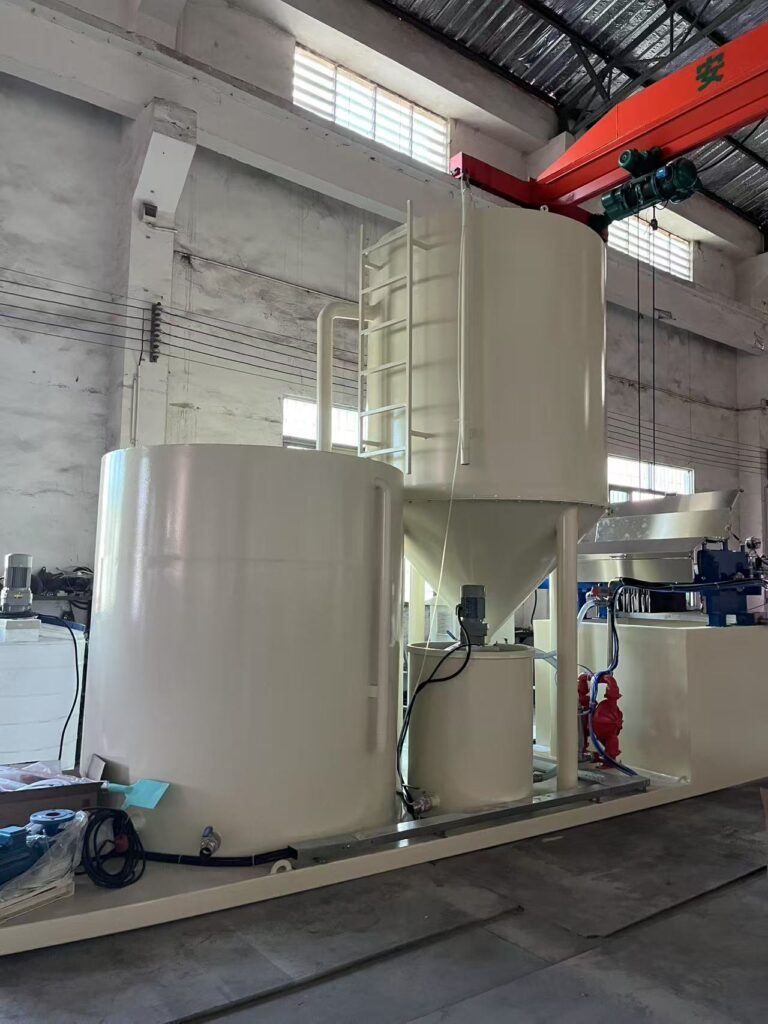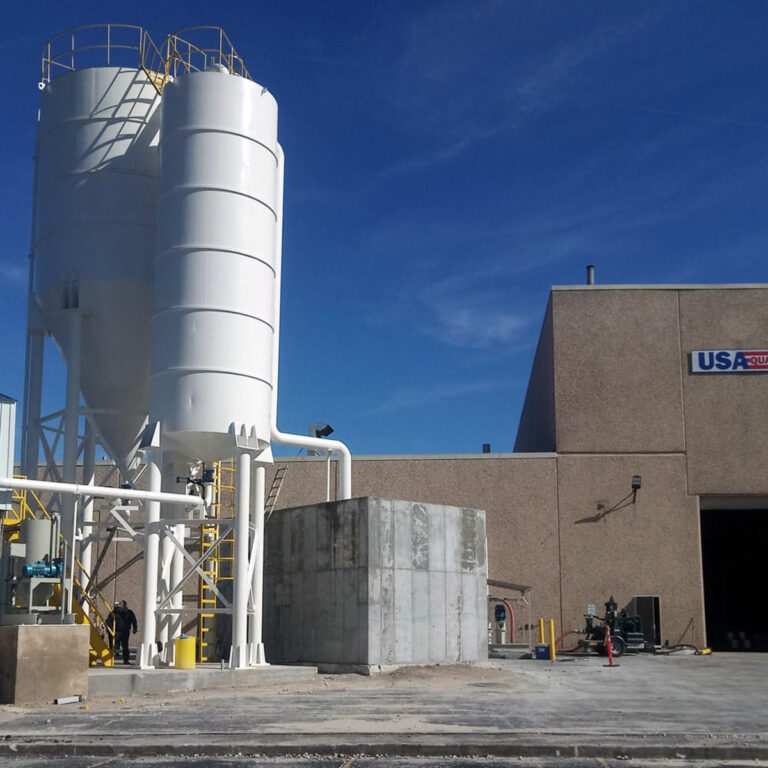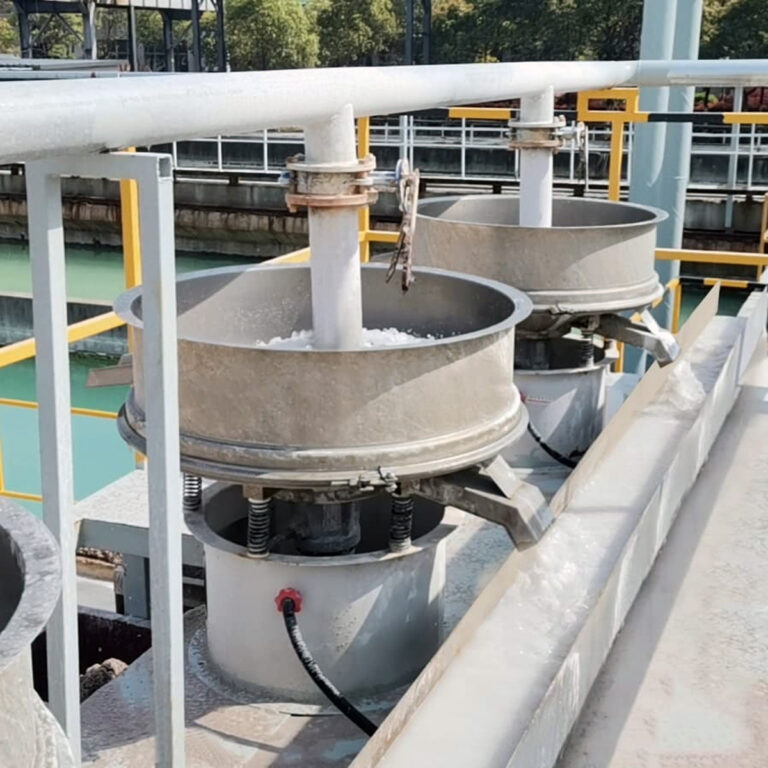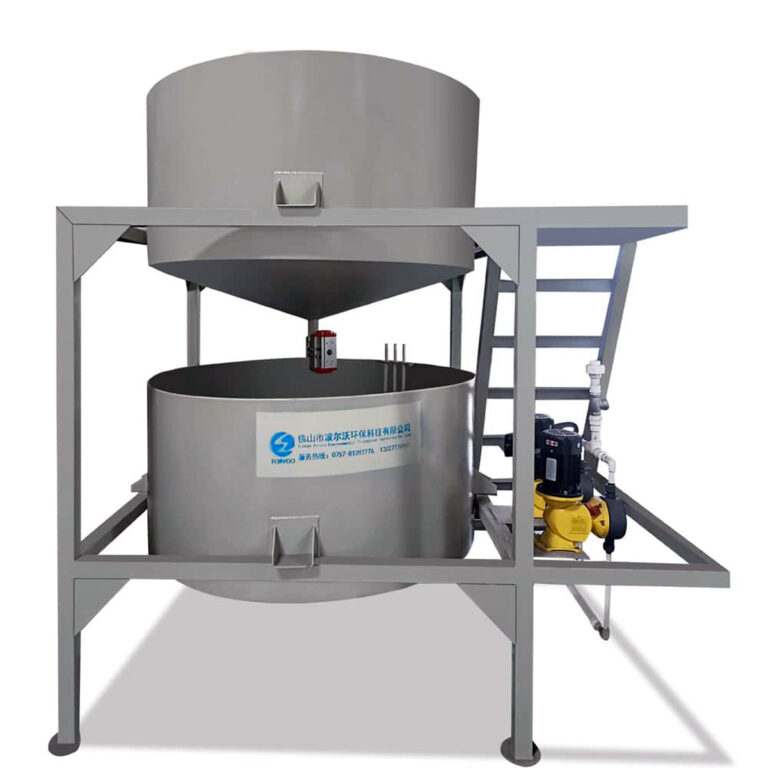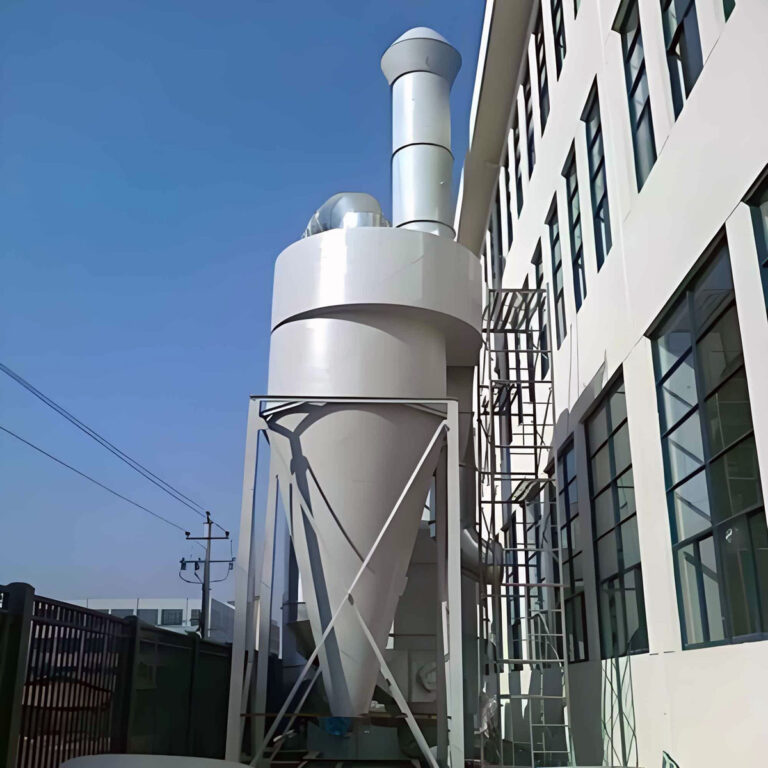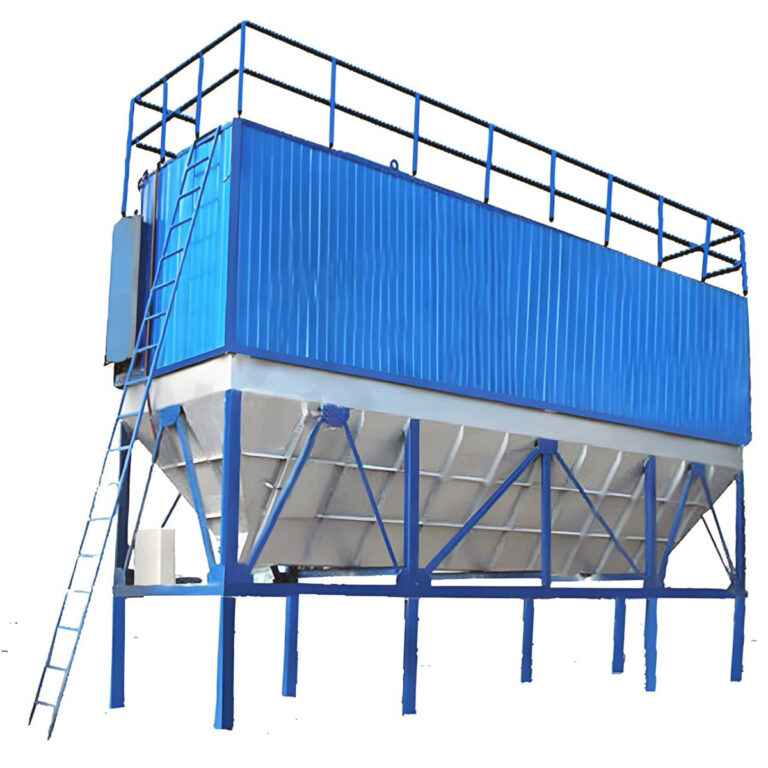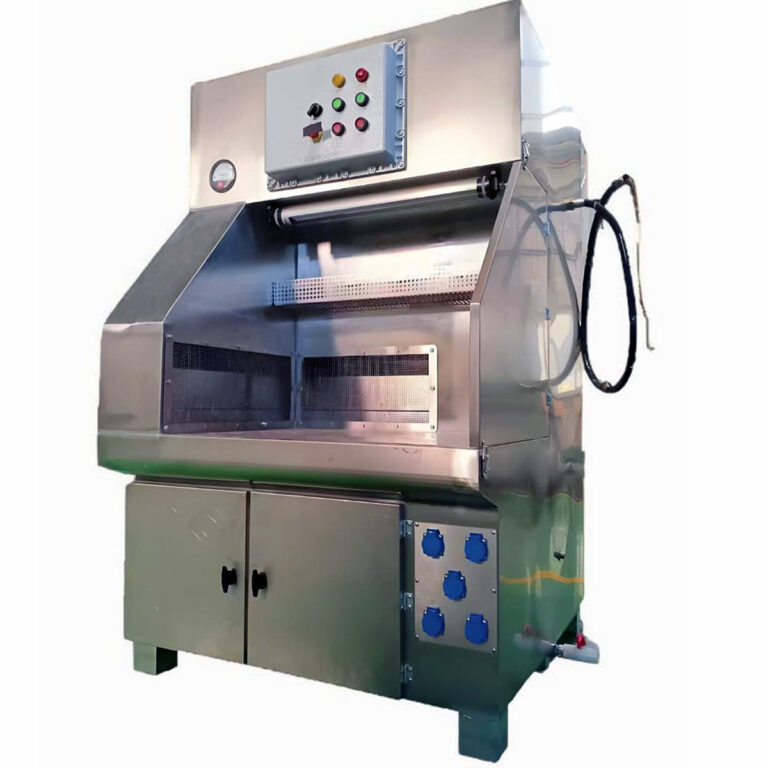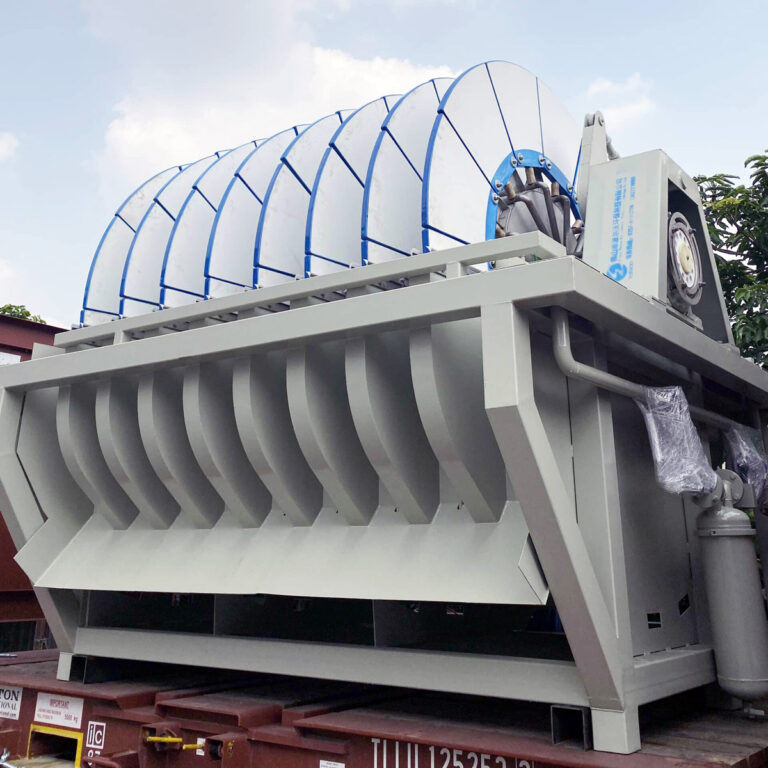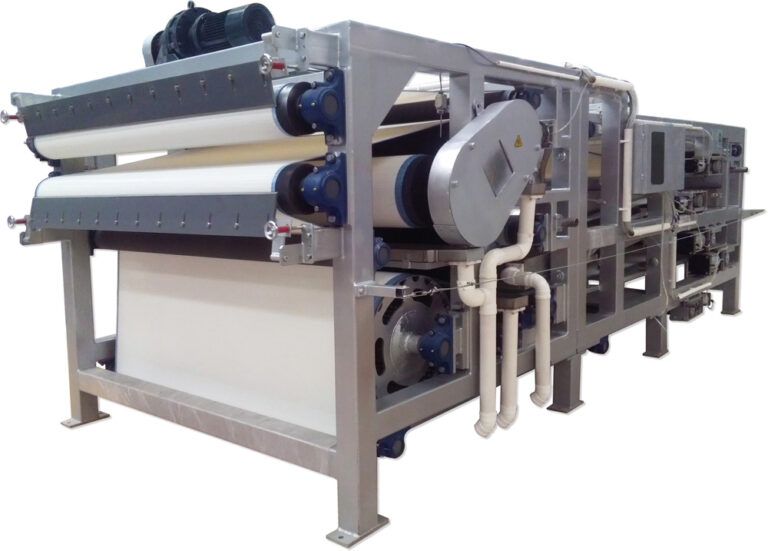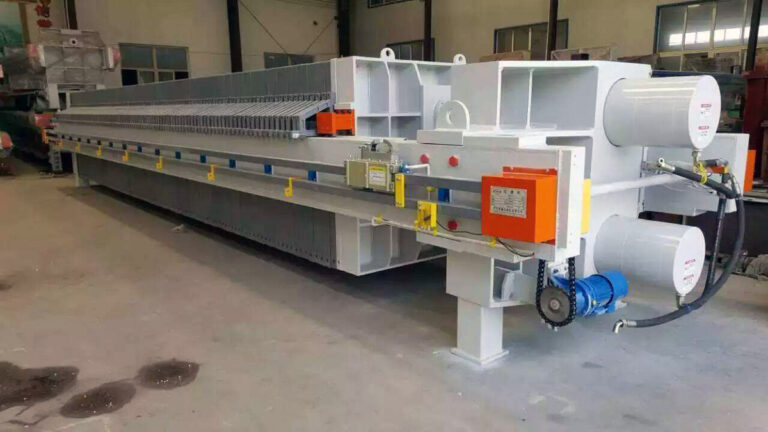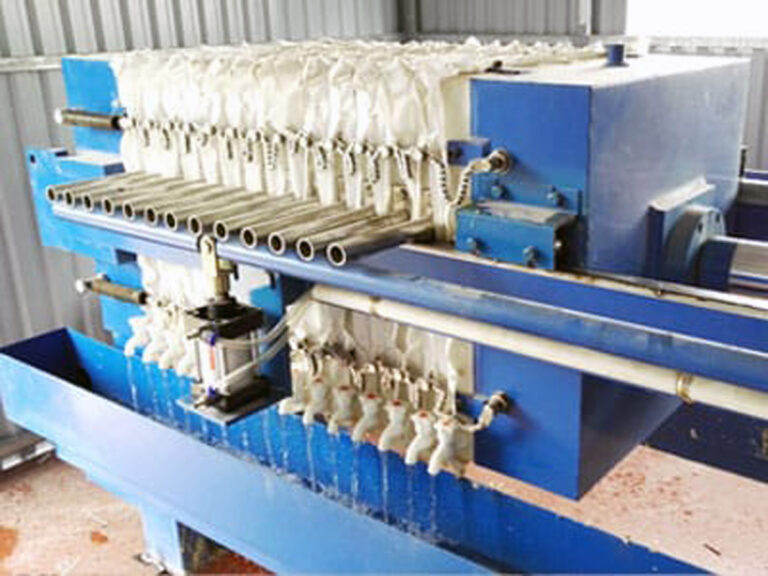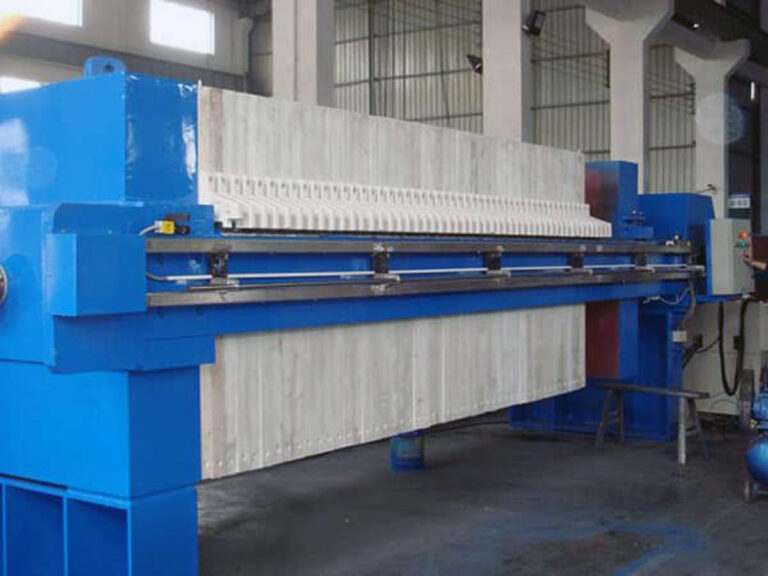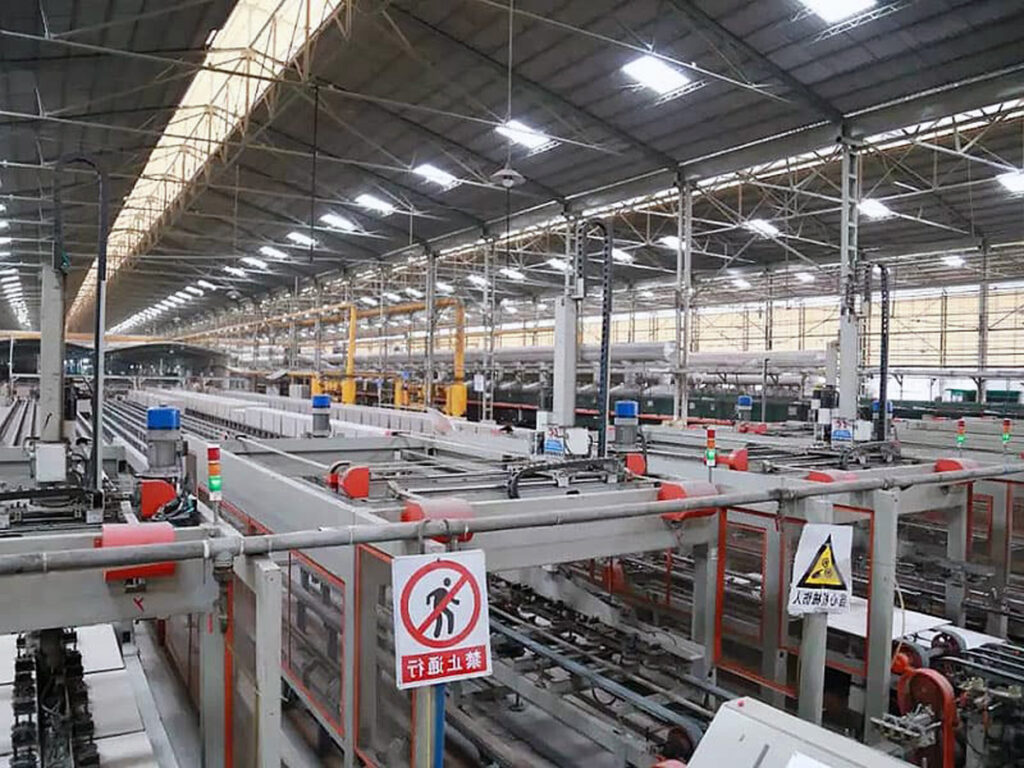Finding reliable filtration equipment suppliers presents a complex challenge for industrial operations worldwide. Manufacturing plants, water treatment facilities, and chemical processing companies face mounting pressure to maintain operational efficiency while meeting stringent environmental regulations. The wrong supplier choice can result in costly downtime, regulatory violations, and compromised product quality.
This challenge becomes even more critical when considering that industrial filtration failures cost companies an average of $50,000 per incident in lost production time alone. Poor supplier relationships lead to delayed maintenance schedules, inadequate technical support, and ultimately, system breakdowns that could have been prevented.
Our comprehensive directory and evaluation framework will guide you through selecting top-tier industrial filtration manufacturers, comparing vendor capabilities, and establishing partnerships that ensure long-term operational success. PORVOO has compiled insights from industry experts and real-world performance data to help you navigate this critical decision.
What Are Industrial Filtration Equipment Suppliers?
Industrial filtration equipment suppliers represent specialized manufacturers and distributors who provide comprehensive filtration solutions for various industrial applications. These companies design, manufacture, and distribute filtration systems ranging from basic particulate filters to complex multi-stage purification systems.
Core Services and Product Categories
Best filter suppliers typically offer three primary service categories: equipment manufacturing, system integration, and ongoing technical support. Equipment manufacturing encompasses everything from filter media production to complete filtration system assembly. System integration involves customizing filtration solutions to meet specific industrial requirements, while technical support ensures optimal performance throughout the equipment lifecycle.
The product portfolio of leading suppliers includes liquid filtration systems, air filtration equipment, and specialized process filters. Liquid filtration systems handle everything from basic sediment removal to advanced chemical separation processes. Air filtration equipment addresses industrial air quality requirements, while specialized process filters serve unique industry applications like pharmaceutical manufacturing or food processing.
Market Scope and Applications
Industrial filtration markets span across manufacturing, petrochemical, pharmaceutical, food and beverage, and water treatment industries. Manufacturing facilities rely on filtration for coolant cleaning, hydraulic fluid maintenance, and air quality control. The global industrial filtration market reached $32.5 billion in 2023, with projected growth of 6.2% annually through 2028.
| Industry Sector | Primary Applications | Market Share |
|---|---|---|
| Manufacturing | Coolant/Hydraulic Systems | 28% |
| Water Treatment | Municipal/Industrial | 24% |
| Chemical Processing | Product Purification | 18% |
| Food & Beverage | Process Water/Air | 16% |
| Pharmaceutical | Sterile Processing | 14% |
How to Choose the Right Industrial Filter Companies?
Selecting appropriate industrial filter companies requires systematic evaluation of technical capabilities, service quality, and long-term reliability. The decision process should prioritize companies that demonstrate proven expertise in your specific industry while maintaining robust supply chain management.
Technical Competency Assessment
Technical evaluation begins with assessing a supplier’s engineering capabilities and product quality certifications. ISO 9001 certification indicates quality management system compliance, while industry-specific certifications like FDA approval or ASME compliance demonstrate specialized expertise. Companies with in-house R&D facilities typically offer more innovative solutions and faster customization capabilities.
Performance specifications provide crucial evaluation criteria. Flow rate capacity, filtration efficiency ratings, and operating pressure ranges must align with your operational requirements. For example, a chemical processing facility requiring 99.97% particle removal efficiency at 150 PSI operating pressure needs suppliers who can consistently meet these specifications.
Service and Support Infrastructure
Comprehensive service infrastructure separates exceptional suppliers from average providers. Look for companies offering 24/7 technical support, preventive maintenance programs, and rapid replacement part availability. Industry research indicates that suppliers with local service centers reduce maintenance response times by 40% compared to those relying solely on remote support.
Geographic coverage significantly impacts service quality. Suppliers with regional distribution networks and certified service technicians provide more reliable support than those operating from distant locations. This becomes particularly important for critical applications where filtration system downtime directly impacts production schedules.
What Makes the Best Filter Suppliers Stand Out?
Best filter suppliers distinguish themselves through superior product quality, comprehensive technical support, and innovative solutions that address evolving industry challenges. These companies invest heavily in research and development while maintaining rigorous quality control standards.
Innovation and Technology Leadership
Leading suppliers consistently introduce advanced filtration technologies that improve efficiency and reduce operating costs. Recent innovations include smart filtration systems with IoT connectivity, enabling predictive maintenance and real-time performance monitoring. These systems can reduce maintenance costs by up to 30% while extending filter life by 25%.
Advanced filter media represents another area of innovation. Nanofiber technology, specialized coating applications, and multi-layer construction techniques have dramatically improved filtration efficiency while reducing pressure drop. For instance, modern pleated filters achieve 99.5% efficiency ratings while maintaining 50% lower pressure drop compared to conventional designs.
Quality Assurance and Certifications
Superior suppliers maintain comprehensive quality assurance programs that exceed industry standards. NSF International certification, ANSI compliance, and third-party testing validation demonstrate commitment to product quality. Companies with ISO 14001 environmental management certification also ensure sustainable manufacturing practices.
Quality metrics include filter life expectancy, efficiency consistency, and structural integrity under extreme operating conditions. Premium suppliers typically offer filter life warranties and performance guarantees that reflect confidence in their products’ reliability.
Comprehensive Product Portfolios
Top-tier suppliers offer complete filtration solutions rather than limited product lines. This includes filtration system design and manufacturing capabilities, replacement parts availability, and complementary equipment like pumps and monitoring systems.
Product diversity enables suppliers to serve multiple industries and applications from a single source. This consolidation simplifies procurement processes and often results in better pricing through volume relationships.
Which Industrial Filtration Manufacturers Lead the Market?
Several industrial filtration manufacturers have established market leadership through consistent innovation, global presence, and proven track records across multiple industries. These companies typically maintain manufacturing facilities in multiple countries and serve diverse customer bases.
Global Market Leaders
Market-leading manufacturers share common characteristics: extensive product portfolios, strong R&D capabilities, and comprehensive service networks. Companies like Parker Hannifin, Pall Corporation, and Eaton dominate specific market segments while maintaining broad industry coverage.
Regional manufacturers often excel in specialized applications or serve specific geographic markets with customized solutions. These companies frequently offer more personalized service and faster response times compared to multinational corporations.
Emerging Technology Providers
Newer manufacturers focusing on advanced filtration technologies are gaining market share through innovative approaches. Companies specializing in membrane technology, electrochemical filtration, and smart filtration systems represent emerging market segments with significant growth potential.
“The filtration industry is experiencing rapid technological advancement, with companies investing 8-12% of revenue in R&D to develop next-generation solutions,” notes Dr. Sarah Chen, filtration technology researcher at MIT.
| Manufacturer Type | Market Share | Key Advantages |
|---|---|---|
| Global Leaders | 45% | Comprehensive Support |
| Regional Specialists | 35% | Customized Solutions |
| Emerging Tech | 20% | Advanced Innovation |
How Do Filter Equipment Vendors Ensure Quality?
Filter equipment vendors implement multi-layered quality assurance processes that encompass materials sourcing, manufacturing controls, and final product testing. These processes ensure consistent performance and reliability across all product lines.
Manufacturing Quality Controls
Quality control begins with raw material selection and supplier qualification. Premium vendors maintain approved vendor lists and conduct regular supplier audits to ensure material consistency. Statistical process control methods monitor manufacturing parameters in real-time, identifying variations before they impact product quality.
Testing protocols include both routine quality checks and comprehensive performance validation. Routine testing covers dimensional accuracy, material integrity, and basic performance parameters. Comprehensive testing evaluates filters under simulated operating conditions, including temperature extremes, pressure cycling, and contamination challenges.
Performance Validation and Testing
Independent testing laboratories provide third-party validation of filter performance claims. ASHRAE 52.2 testing for air filters and ISO 16889 testing for liquid filters establish standardized performance metrics. These tests verify efficiency ratings, capacity information, and structural integrity under specified conditions.
Field testing programs complement laboratory validation by evaluating filter performance in actual operating environments. This real-world testing identifies potential issues that laboratory conditions might not reveal and validates performance claims under varying operating conditions.
Supply Chain Management
Robust supply chain management ensures consistent product availability and quality. Leading vendors maintain multiple manufacturing locations and diversified supplier networks to minimize disruption risks. Inventory management systems track product availability and automatically trigger reorder points to prevent stockouts.
A water treatment facility in Texas recently avoided a critical shutdown by working with a supplier who maintained strategic inventory reserves. When their primary filtration system required emergency replacement, the supplier delivered equipment within 48 hours, preventing estimated losses of $200,000 in production downtime.
What Should You Expect from Filtration System Suppliers?
Filtration system suppliers should provide comprehensive solutions that extend beyond basic equipment delivery. Expectations should include system design assistance, installation support, and ongoing maintenance services that ensure optimal performance throughout the equipment lifecycle.
System Design and Engineering Support
Professional system design services help optimize filtration performance while minimizing installation and operating costs. This includes flow analysis, sizing calculations, and integration planning that ensures compatibility with existing systems. Experienced suppliers utilize specialized software tools to model system performance and identify potential optimization opportunities.
Engineering support encompasses both initial system design and ongoing optimization. Suppliers should provide detailed specifications, installation drawings, and commissioning procedures that facilitate smooth system startup. Post-installation support includes performance monitoring and system optimization recommendations.
Installation and Commissioning Services
Comprehensive installation services ensure proper system setup and optimal initial performance. This includes equipment placement, piping connections, electrical integration, and control system programming. Professional installation reduces startup time and minimizes the risk of operational issues.
Commissioning services verify that installed systems meet design specifications and performance requirements. This includes flow testing, pressure verification, and efficiency validation under actual operating conditions. Proper commissioning identifies and resolves any issues before full-scale operation begins.
Maintenance and Support Programs
Ongoing maintenance programs maximize filter life and system reliability. These programs typically include scheduled inspections, preventive maintenance, and emergency repair services. Many suppliers offer maintenance contracts that provide predictable costs and guaranteed response times.
Advanced filtration equipment increasingly includes monitoring systems that track performance metrics and predict maintenance requirements. These systems can alert operators to changing conditions and recommend maintenance actions before problems develop.
How to Evaluate Industrial Filter Companies’ Performance?
Evaluating industrial filter companies requires systematic assessment of multiple performance criteria including product quality, service responsiveness, and long-term reliability. This evaluation process should incorporate both quantitative metrics and qualitative assessments.
Key Performance Indicators
Primary performance indicators include product quality metrics, delivery performance, and customer satisfaction scores. Product quality metrics encompass filter life, efficiency consistency, and defect rates. Delivery performance measures on-time delivery rates and inventory availability. Customer satisfaction scores reflect overall service quality and problem resolution effectiveness.
Financial stability indicators provide insight into supplier reliability and long-term viability. Companies with strong financial positions are better positioned to invest in R&D, maintain inventory levels, and provide ongoing support. Credit ratings, revenue growth trends, and market share data help assess financial stability.
Customer References and Case Studies
Customer references provide valuable insights into supplier performance and reliability. Request references from companies with similar applications and operating conditions. These references should address product performance, service quality, and overall satisfaction with the supplier relationship.
Case studies demonstrate supplier capabilities in addressing specific challenges and achieving measurable results. Look for case studies that include quantified benefits such as cost savings, efficiency improvements, or extended equipment life. These examples provide concrete evidence of supplier value.
Long-term Partnership Potential
Successful filtration programs require long-term partnerships with reliable suppliers. Evaluate suppliers based on their commitment to ongoing relationships, willingness to invest in customer-specific solutions, and ability to adapt to changing requirements. The best suppliers view customer relationships as partnerships rather than transactional exchanges.
Technology roadmaps and future product development plans indicate supplier commitment to innovation and long-term market presence. Suppliers with clear development strategies and continued investment in new technologies are better positioned to meet evolving customer needs.
Conclusion
Selecting the right filtration equipment suppliers requires careful evaluation of technical capabilities, service quality, and long-term partnership potential. The most successful supplier relationships combine superior product quality with comprehensive support services and innovative solutions that address evolving industry challenges.
Key success factors include thorough technical assessment, comprehensive service evaluation, and alignment with long-term operational goals. Companies that invest time in proper supplier evaluation typically achieve 25-30% better filtration system performance and significantly reduced total cost of ownership.
The filtration industry continues evolving with smart technologies, advanced materials, and sustainability initiatives driving innovation. Forward-thinking suppliers who embrace these trends while maintaining focus on fundamental quality and service principles will deliver the greatest value to their customers.
For immediate access to proven filtration solutions and expert consultation, explore comprehensive industrial filtration systems designed for demanding industrial applications. The right supplier partnership can transform your filtration program from a maintenance necessity into a competitive advantage.
Frequently Asked Questions
Q: What makes a supplier qualify as one of the Best Industrial Filtration Equipment Suppliers | Directory?
A: The best industrial filtration equipment suppliers are recognized for their ability to provide high-quality, reliable filtration products with diverse application capabilities. Key qualifying factors include:
- Wide range of filtration equipment types (liquid, gas, air filters)
- Custom manufacturing capabilities to meet specific industrial needs
- Certifications such as ISO 9001 and compliance with industry standards
- Strong reputation with proven performance in sectors like petrochemical, pharmaceutical, aerospace, and food processing
- Efficient supply chain and customer service support
Suppliers listed in a trusted directory typically demonstrate these attributes, ensuring buyers access dependable filtration solutions.
Q: How can I use a directory to find the Best Industrial Filtration Equipment Suppliers | Directory effectively?
A: To maximize a filtration equipment directory for finding top suppliers:
- Use filters to narrow down suppliers by product type, industry served, or certifications
- Review company profiles for manufacturing capabilities, certifications, and years of experience
- Compare product offerings and technical specifications listed
- Look for value-added services like custom design, engineering support, and after-sales service
- Request quotes directly through the directory platform to streamline communication and pricing comparison
This approach helps identify suppliers best suited to your specific filtration requirements efficiently.
Q: What are the common industries served by the Best Industrial Filtration Equipment Suppliers | Directory?
A: Leading suppliers across the directory typically cater to a broad spectrum of industries, such as:
- Petrochemical and oil & gas for process gas and liquid filtration
- Pharmaceutical and food & beverage for stringent purity filtration standards
- Aerospace and defense requiring high-performance contamination control
- Power generation and manufacturing needing reliable fluid and air filtration
- Water treatment and environmental management applications
This wide industrial reach highlights the versatility and critical importance of industrial filtration equipment.
Q: What types of filtration equipment are commonly offered by the Best Industrial Filtration Equipment Suppliers | Directory?
A: Suppliers in the directory typically provide a variety of filtration solutions including:
- Inline liquid filters for particle removal and fluid purity
- Compressed air and gas filters designed for industrial pneumatic systems
- Organic vapor and chemical filtration systems for hazardous environments
- Hydronic and pressure filtration systems tailored to control processes
- Custom-engineered filters meeting specific temperature and pressure conditions
Understanding these common types helps buyers select the equipment matching their operational needs.
Q: Why is it important to choose certified suppliers from the Best Industrial Filtration Equipment Suppliers | Directory?
A: Certification and compliance underscore a supplier’s commitment to quality and safety. Benefits include:
- Assurance of manufacturing processes adhering to international standards (e.g., ISO 9001)
- Compliance with industry regulations like FDA, CSA, RoHS, and REACH ensuring product reliability and environmental responsibility
- Increased confidence in product testing, durability, and performance under specified conditions
- Enhanced ability to meet client specifications and regulatory audits
Selecting certified suppliers reduces risk and supports operational excellence in filtration system applications.
Q: How can advances in filtration technology be found through the Best Industrial Filtration Equipment Suppliers | Directory?
A: Many top suppliers featured in directories invest in research and development to offer the latest filtration technologies. To discover innovations:
- Check supplier profiles for mentions of new product development and advanced materials
- Look for custom filtration system providers offering tailored solutions using cutting-edge designs
- Explore product descriptions highlighting improved efficiency, sustainability, and environmental compliance
- Contact suppliers directly for insights into upcoming technologies or pilot projects
This proactive approach helps businesses stay competitive by adopting state-of-the-art industrial filtration solutions.
External Resources
Filtration System Manufacturers and Suppliers – IQS Directory – Comprehensive directory of leading industrial filtration system manufacturers and suppliers, providing company profiles, detailed product information, and customer reviews for sourcing the best filtration solutions in various industries.
Filtration System Manufacturers | Filtration System Supplier – Lists reputable filtration system suppliers that offer custom-designed filtration solutions for industrial and municipal applications, including advanced air, water, and wastewater treatment technologies.
Filtration Equipment Suppliers Manufacturers – IQS Directory – Features a detailed list of manufacturers and suppliers specializing in industrial filtration equipment, offering a range of innovative products and solutions for different filtration needs.
Filtration Equipment Suppliers – Thomasnet – Directory of industrial filtration equipment suppliers, including distributors and manufacturers, serving diverse sectors such as aviation, food processing, chemical, and metals.
Filtration Equipment Manufacturers Suppliers – Directory connecting buyers with trusted industrial filtration equipment manufacturers and service providers, offering a broad selection of filtration technologies and expert consultation.
Industrial Filtration Suppliers Directory – Environmental Expert – Directory of companies specializing in industrial filtration equipment and technology, covering a wide range of solutions for environmental, water, and industrial process applications.
